The Kingston A1000 NVMe SSD Review: Phison E8 Revisited
by Billy Tallis on July 2, 2018 8:00 AM ESTAnandTech Storage Bench - Light
Our Light storage test has relatively more sequential accesses and lower queue depths than The Destroyer or the Heavy test, and it's by far the shortest test overall. It's based largely on applications that aren't highly dependent on storage performance, so this is a test more of application launch times and file load times. This test can be seen as the sum of all the little delays in daily usage, but with the idle times trimmed to 25ms it takes less than half an hour to run. Details of the Light test can be found here. As with the ATSB Heavy test, this test is run with the drive both freshly erased and empty, and after filling the drive with sequential writes.
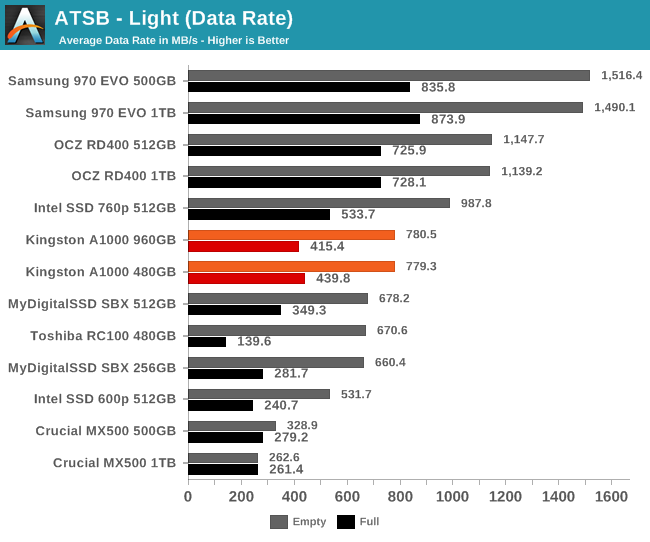
The average data rates from the Kingston A1000 on the Light test are a step up from the MyDigitalSSD SBX, both when the test is run on an empty drive and when the drive is full. The A1000 is clearly quite a bit faster than SATA drives, but for workloads this light the difference won't be very noticeable.
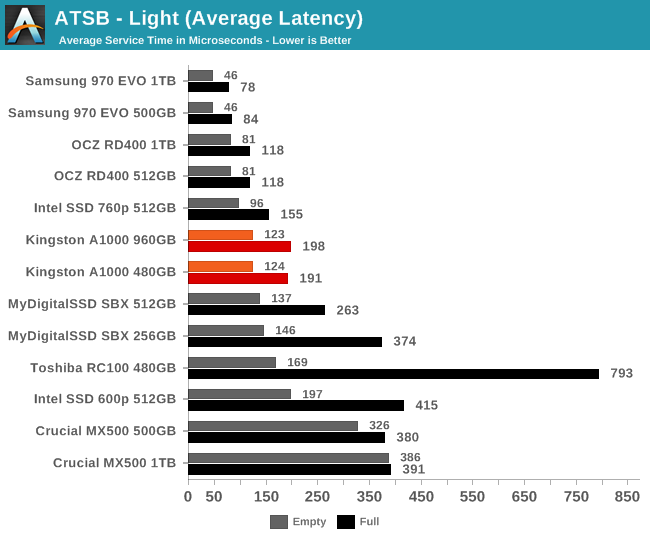
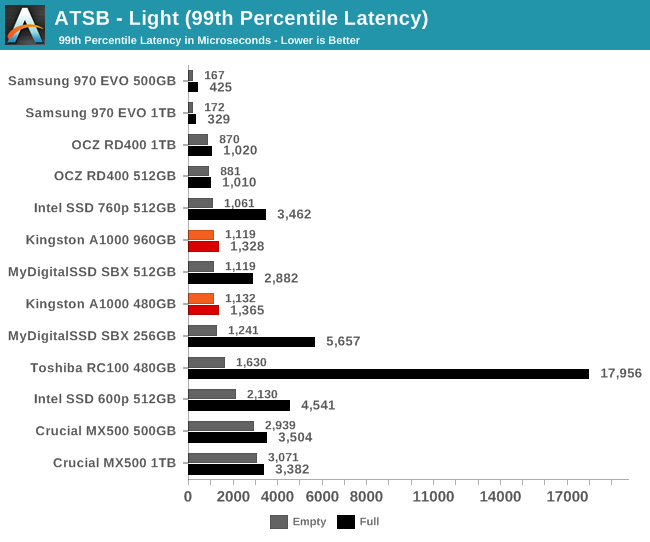
The extra spare area of the A1000 as compared with the SBX shows up clearly in the impact on full-drive latency, especially the 99th percentile latency. The A1000 has great QoS that looks much more like that of a high-end NVMe.
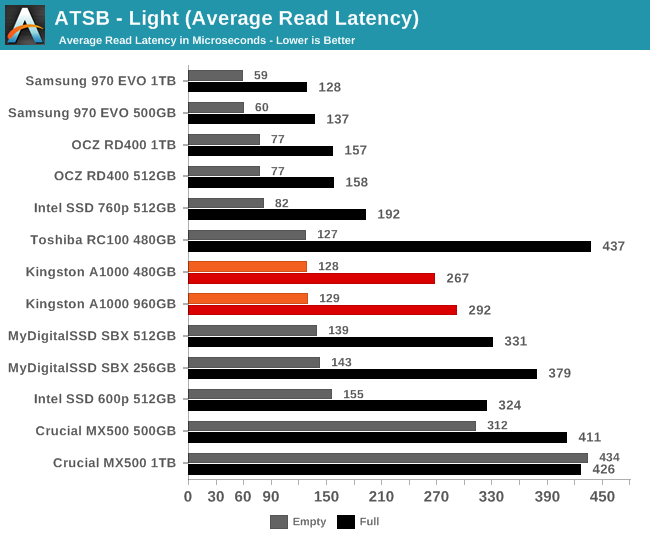
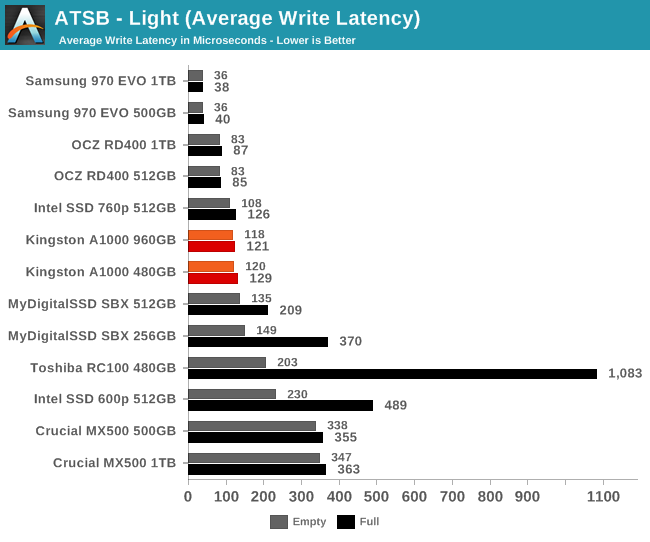
The average read latencies from the Kingston A1000 don't particularly stand out from the competition, but the average write latency is clearly better than other low-end NVMe SSDs, especially when the test is run on a full drive.
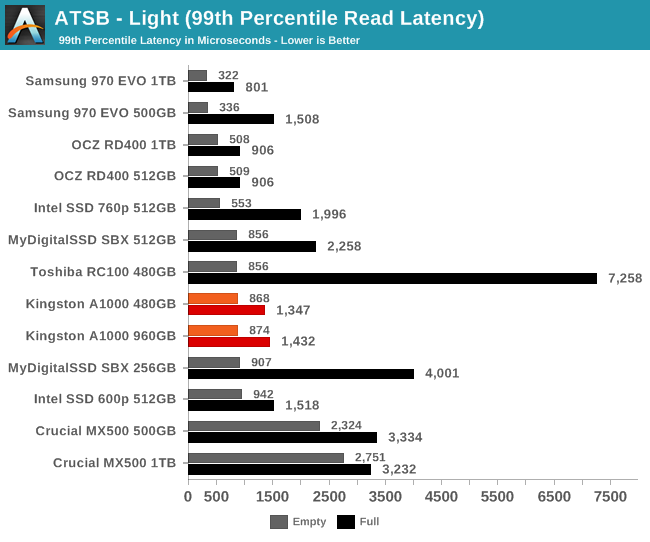
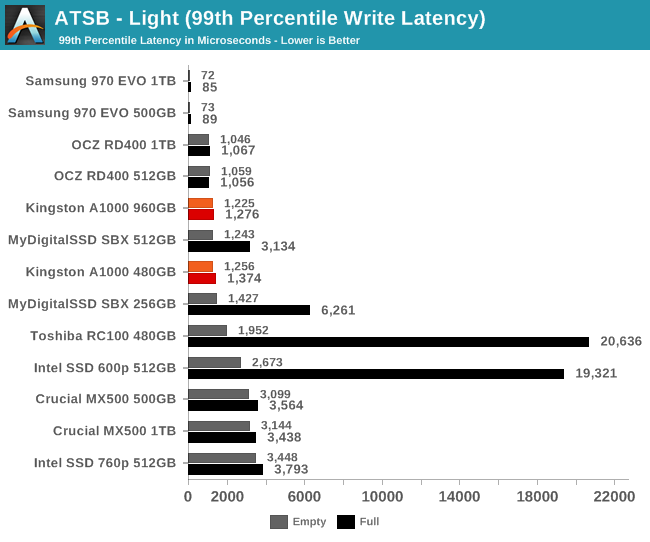
The 99th percentile read and write latency scores amplify the full-drive performance advantage of the Kingston A1000, to the point that even the read latency is noticeably better than its closest competition, and the write QoS is quite good.
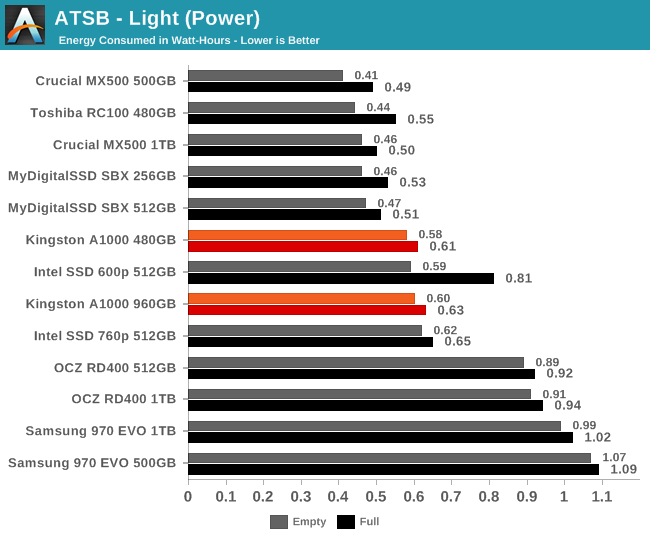
The MyDigitalSSD SBX and Toshiba RC100 were able to more or less match the Crucial MX500 SATA SSD for energy usage on the Light test, but the Kingston A1000 doesn't do as well. It is still more efficient than most NVMe drives, but not remarkably so.










26 Comments
View All Comments
leexgx - Wednesday, July 4, 2018 - link
I am fine with no smaller ssds as anything below 240gb is not really enough and cost only 20 more then a 120gb model any wayzepi - Monday, January 7, 2019 - link
Let's return to the old review of the "crappy" product after half a year has elapsed.A relative gets a quite nice (for his budget) 6-core intel laptop from Black Friday sales, but it only comes with an HDD.
I want to get him an SSD that fits the M.2 slot that the machine has. Laptop datasheet leads me to believe that this very specific model number doesn't support SATA over M.2 (many other sub-models list both Sata M.2 and pcie NVMe, but this one particularly mentions only NVMe pcie)
My limited gift budget allows me to choose 480GB Kingston or 256GB EVO970 from Amazon as I don't have time or possibility to shop around in local stores.
So for about 90 euros I can choose either faster 256GB or slower 480GB m.2 drive. Choice is clear. In this case bigger is better, even though it is a bit slower. Under most practical day to day use the Kingston is a much better choice as it is quite easy to fill a 250GB SSD, but difficult to max out the iops of A1000 in a way that bothers the user badly.
EV970 500GB would require about 50% increase in gift budget. Not impossible, but I see very little value from the extra speed, while even the entry level pci-e M.2 SSD is an insane leap for the laptop.
Corsair P1 500 would also have been an option, but at that particular moment it was more pricey.
So yeah, even the "worst" of their class SSD's have value to offer.
I see very little value in faster nvme drives for most people. We've come a long way from the times of Intel X25-M. Even the crappy SSD's are quite good these days.